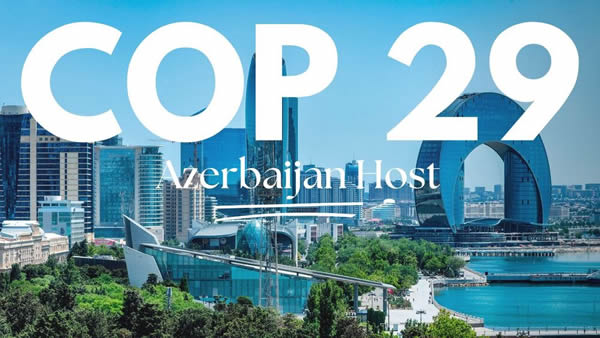
Developing countries, including Ghana have been handed a financial package of USD 300 billion per year for the next decade to implement climate actions and build resilience against changing weather impacts.
Though this package is three times the previous 100 billion pledge, it is less than the proposal of USD 1.3 trillion developing countries put forward.
Mr Mukhtar Babayev, COP29 President, announcing the agreement at the closing plenary early hours of Sunday, 24thNovember, 2024 in Baku, said the deal was as a result of months of intensive, complex, and controversial negotiations.
With a central focus on climate finance, COP29 brought together nearly 200 countries in Baku, Azerbaijan, and reached a breakthrough agreement.
Known formally as the New Collective Quantified on Climate Finance (NCQG), it was agreed after two weeks of intensive negotiations and several years of preparatory work, in a process that requires all nations to unanimously agree on every word of the agreement.
That and other decisions, Mr Babayev said, marked a critical step in putting in place the means to deliver a pathway to reduce temperature to 1.5 degrees.
The COP29 President noted that, “When the world came to Baku, people doubted that Azerbaijan could deliver. They doubted that everyone could agree. They were wrong on both counts. With this breakthrough, the Baku Finance Goal will turn billions into trillions over the next decade. We have secured a trebling of the core climate finance target for developing countries each year.”
“The Baku Finance Goal represents the best possible deal we could reach, and we have pushed the donor countries as far as possible…The science shows that the challenges will only grow. Our ability to work together will be tested. The Baku breakthrough will help us weather the coming storms.”
Mr Simon Stiell, the Executive Secretary, UN Climate Change, described the new finance goal as an insurance policy for humanity, amid worsening climate impacts hitting every country.
“But like any insurance policy, it only works if premiums are paid in full, and on time. Promises must be kept to protect billions of lives” he said.
The deal, he noted, would keep the clean energy boom growing, helping all countries to share in its huge benefits – more jobs, stronger growth, cheaper and cleaner energy for all.
“So this is no time for victory laps, we need to set our sights and redouble our efforts on the road to Belém. Even so, we’ve shown the UN Paris Agreement is delivering but governments still need to pick up the pace,” he said.
Dr. Antwi-Boasiako Amoah, a leading member of the Africa Group of Negotiators, said developing countries were very disappointed though they accepted the decision.
He said the G77, a coalition of developing countries, which negotiated on their behalf in the United Nations had called for a 500 billion package, but the developed world said it was unrealistic.
The new financial package is expected to come from government grants and the private sector – banks and businesses – and should help countries move away from fossil fuel power to using renewable energy.
COP29 also reached agreement on carbon markets – which several previous COPs had not been able to achieve. These agreements will help countries deliver their climate plans more quickly and make faster progress in halving global emissions this decade, as required by science.
Baku also finalised decision on matters relating to the least developed countries (LDCs) contains a provision for the establishment of a support programme for the implementation of National Adaptation Plans (NAPs) for the LDCs. Parties extensively discussed the second five-year assessment of progress to formulate and implement NAPs, and will continue that in June 2025.
Source: GNA























